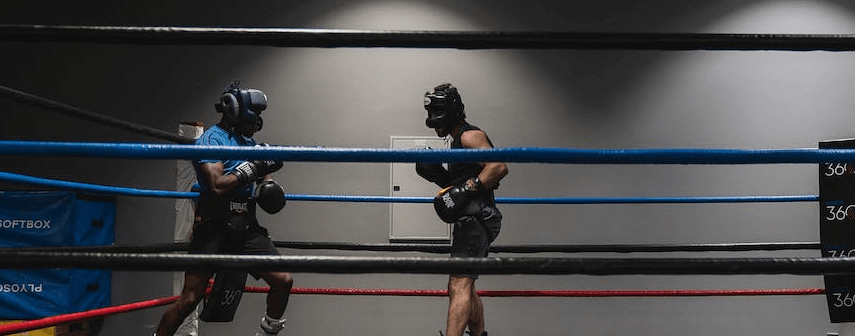10 Boxers Who Started Late

There's a common thought that to succeed in boxing, you must begin training early to build a strong base through years of practice and resilience.
However, late bloomers in the boxing scene have shown that a thriving career is still within reach. Consider the untapped potential of those once underestimated underdogs. place your bets Imagine betting on fighters lacking extensive experience but defying expectations to make their mark.
The Stigma of Starting Late
There's no fixed age to step into professional boxing, nor is there proof that early and intense training is the only path to greatness. While beginning young aids gradual growth, history is filled with late starters who thrived through focused training and determination.
Here’s a few pointers from the pros:
Focus on defence Refine your head movement to make dodging, blocking, and parrying more effective. Enhance your evasion skills to frustrate opponents' efforts.
Change your lifestyle Live a lifestyle supporting your ambitions, integrating a steady routine of diet and rest to reinforce ongoing progress.
Improve balance and stance Adopt a broader stance and reduce weight for better balance and reach, boosting both offense and defense.
Practice varied combinations Diversify your striking combinations frequently. Use focus mitts to perfect technique and enhance punching power.
Enhance endurance Boost your cardiovascular endurance to elevate fight stamina, working on your body's oxygen intake efficiency.
Champions Who Blossomed Late
Boxing history is rich with compelling figures whose life stories captivate as much as their ring successes.
Each of these champions stands for resilience, tenacity, and achievement—remember them as you browse through boxing tales on your device.
1. Bernard Hopkins
Bernard Hopkins' boxing journey is marked by grit and triumph, having started at 23.
He claimed the IBF Middleweight crown in 1996 and held various major titles in two divisions, reigning as the undisputed Middleweight king from 2001 to 2005 and the lineal light heavyweight leader from 2011 to 2012.
During his youth, Hopkins strayed into crime, leading to incarceration at 17 for 18 years, though he was released after 6. He vowed never to return, driven towards positive change that boxing provided. His troubled past forged vital traits like mental fortitude, discipline, and work ethic, instrumental to his success.
2. Charlie Zelenoff
Charlie Zelenoff entered professional boxing unconventionally at 23, leveraging social media and YouTube for self-promotion and notoriety.
Zelenoff's online fame soared with repeated challenges to pro and amateur fighters, notably provoking Deontay Wilder, an ex-WBC heavyweight champ.
This encounter followed Zelenoff's offensive comments about Wilder, culminating in a gym confrontation, which became a viral spectacle.
3. Joe Calzaghe
Zelenoff never secured official titles but found success as an internet persona, monetizing YouTube ads, sponsorships, and merch sales.
Joe Calzaghe's illustrious career spanned 1993 to 2008, quickly rising in the ranks after turning pro at 21, with a record-breaking middleweight title reign over a decade.
Calzaghe's father coached him with unique methods, instilling strong discipline crucial to his physical peak and memorable achievements.
4. Dariusz Michalczewski
Calzaghe's journey motivated many, showing that talent combined with dedication and hard work can offset a late start.
Polish native Michalczewski, famed as Tiger, emerged as one of Europe's finest, with an amateur record of 139-11-2 paving his pro success. Debuting at 23, his power and technique shone.
Relocating to Germany was pivotal, granting access to superior facilities, top coaches, and prominent boxing platforms. His 23 title defenses showcased his division dominance.
5. George Foreman
His fans, especially in Poland and Germany, fueled his drive with national pride. Michalczewski exemplified skill, strategy, and resilience, proving even late starters can achieve boxing greatness.
George Foreman, a troubled teen, left Texas for Oregon's Job Corps, a program for disadvantaged youth, discovering boxing and eventually winning the world heavyweight title twice. defeating Joe Frazier .
An amateur, Foreman was on the US Olympic team, claiming a heavyweight gold. He turned pro at 20 and became champion after 4 years.
6. Trevor Berbick
Foreman took a hiatus before a comeback, reclaiming the heavyweight crown at 45, the oldest in history. His story demonstrates adaptability and mental strength, inspiring the boxing community.
Berbick honed his mental, physical, and tactical boxing skills as an amateur, turning pro at 22 and overcoming Muhammad Ali on points to later become the world heavyweight champion in 1986.
7. Ricardo Mayorga
His southpaw position, physical prowess, and relentless style made him formidable. Berbick's career thrived on mental resilience, perseverance, and determination.
Ricardo Mayorga entered professional boxing at 20 against Jose Morales, standing out for his sheer determination and grit despite early losses.
8. Michael Moorer
His mix of boldness and raw skill shaped an aggressive and unorthodox style, drawing attention in the ring.
With an unexpected victory over Vernon Forrest in 2023, Mayorga secured WBA, WBC, and The Ring welterweight titles, marking a high point in his career.
9. Sven Ottke
Michael Moorer, former light heavyweight and heavyweight champ, unveiled a blend of mental toughness and formidable skill.
His professional record boasted 52 victories, with notable matches against Evander Holyfield and George Foreman, marking his legacy.
10. Jack Dempsey
Moorer, going pro at 20, climbed the ranks to secure titles in dual divisions. His left-handed stance was notably advantageous.
Sven Ottke, successful in both amateur and pro boxing, made a formidable mark with an unblemished record as a professional after debuting at 29.
Conclusion
Among few to retire undefeated, Ottke's technical prowess saw him avoid serious damage, driven by defense, footwork, and ring control.




